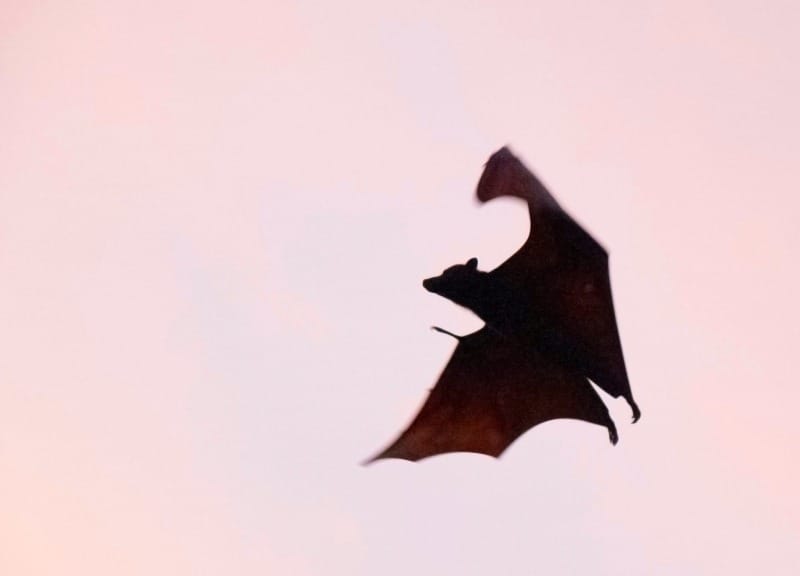In the world of medical research, inspiration can come from unexpected places. Today, we're exploring an intriguing phenomenon that has caught the attention of scientists and could potentially revolutionize our approach to diabetes treatment. Certain species of bats consume enormous amounts of sugar daily, yet they remain perfectly healthy. This remarkable ability has researchers wondering: Could the secret to managing diabetes in humans lie within these flying mammals?
Brief Summary:
- Some bat species consume up to twice their body weight in sugar daily without developing diabetes or obesity.
- Bats have unique metabolic adaptations that allow them to process high amounts of sugar efficiently.
- Scientists are studying these adaptations to develop new treatments for diabetes in humans.
- Research focuses on gut bacteria, insulin sensitivity, and cellular mechanisms in bats.
- Potential applications include new medications and dietary strategies for diabetes management.
The Sweet Life of Fruit Bats
Imagine being able to eat all the candy, cakes, and sugary treats you want without worrying about weight gain or diabetes. For some species of bats, this isn't a fantasy – it's their daily reality. Fruit bats, in particular, have a diet that would make any nutritionist cringe. These flying mammals consume up to twice their body weight in sugary fruits every day, which is equivalent to a human eating 200 candy bars[2]. Yet, unlike humans who would face severe health consequences from such a diet, bats thrive on this sugar-rich menu.
The Bat's Unique Sugar-Processing Abilities
So, what's their secret? Scientists have discovered that bats possess several unique adaptations that allow them to process sugar in ways that humans can't. These adaptations include:
- Efficient Metabolism: Bats can quickly metabolize sugar, preventing harmful buildup in their bloodstream.
- Insulin Sensitivity: Their cells remain highly sensitive to insulin, allowing for better blood sugar control.
- Unique Gut Bacteria: The bat's digestive system hosts special bacteria that may help process sugar more effectively.
Why This Matters for Diabetes Research
Diabetes is a growing global health concern, affecting millions of people worldwide. The condition occurs when the body can't properly regulate blood sugar levels, leading to a host of health problems. By studying how bats manage to consume so much sugar without ill effects, researchers hope to uncover new ways to prevent and treat diabetes in humans[5].
Current Research and Findings
Scientists are delving deep into the bat's biology to understand their sugar-processing superpowers. Some key areas of research include:
- Gut Microbiome Studies: Researchers are examining the unique bacteria in bat digestive systems to see if they play a role in sugar metabolism.
- Genetic Analysis: By studying bat DNA, scientists hope to identify genes that contribute to their sugar tolerance.
- Cellular Mechanisms: Investigations into how bat cells process sugar could reveal new pathways for managing blood glucose levels.
Potential Applications for Human Health
While we're still in the early stages of this research, the potential applications are exciting:
- New Medications: Understanding bat biology could lead to the development of drugs that mimic their sugar-processing abilities.
- Dietary Strategies: Insights from bat diets might inform new nutritional approaches for managing diabetes.
- Preventive Measures: Learning how bats avoid diabetes despite high sugar intake could help us develop better prevention strategies for at-risk individuals.
Challenges and Future Directions
Of course, translating findings from bat studies to human applications isn't straightforward. Researchers face several challenges:
- Biological Differences: Bats and humans have very different physiologies, so not all bat adaptations may be applicable to humans.
- Ethical Considerations: Ensuring that research on bats is conducted ethically and without harm to bat populations is crucial.
- Long-term Studies: Understanding the long-term effects of potential treatments inspired by bat biology will require extensive testing.
What This Means for You
While we're not at the point where doctors will be prescribing a fruit bat-inspired diet for diabetes management, this research opens up exciting possibilities for the future. For now, the best approach to managing diabetes remains a balanced diet, regular exercise, and following your healthcare provider's advice.
However, this research reminds us of the importance of looking to nature for solutions to our health challenges. It also highlights the need to protect biodiversity – we never know where the next medical breakthrough might come from.
Conclusion
The study of fruit bats and their remarkable ability to process sugar without health consequences represents an innovative approach to diabetes research. While we're still far from a bat-inspired cure for diabetes, this research opens up new avenues for understanding and potentially treating this widespread condition.
As we continue to unravel the mysteries of bat metabolism, we may find ourselves one step closer to more effective diabetes treatments. In the meantime, let's appreciate these fascinating creatures not just for their unique abilities, but for the hope they offer in our ongoing battle against diabetes.
Remember, whether you're a bat or a human, a balanced approach to diet and health is always the best policy. But who knows? Maybe one day, thanks to these sugar-loving bats, managing diabetes could become as easy as eating fruit.
Citations:
[1] https://www.npr.org/sections/goats-and-soda/2024/08/16/nx-s1-5064652/diabetes-bats-sugar-consumption
[2] https://www.ncbi.nlm.nih.gov/pmc/articles/PMC10705527/
[3] https://www.nhs.uk/healthier-families/food-facts/sugar/
[5] https://podcasts.ufhealth.org/fruit-bats-could-offer-lesson-for-human-diabetes/
[6] https://www.sciencedaily.com/releases/2024/01/240109121144.htm













Member discussion